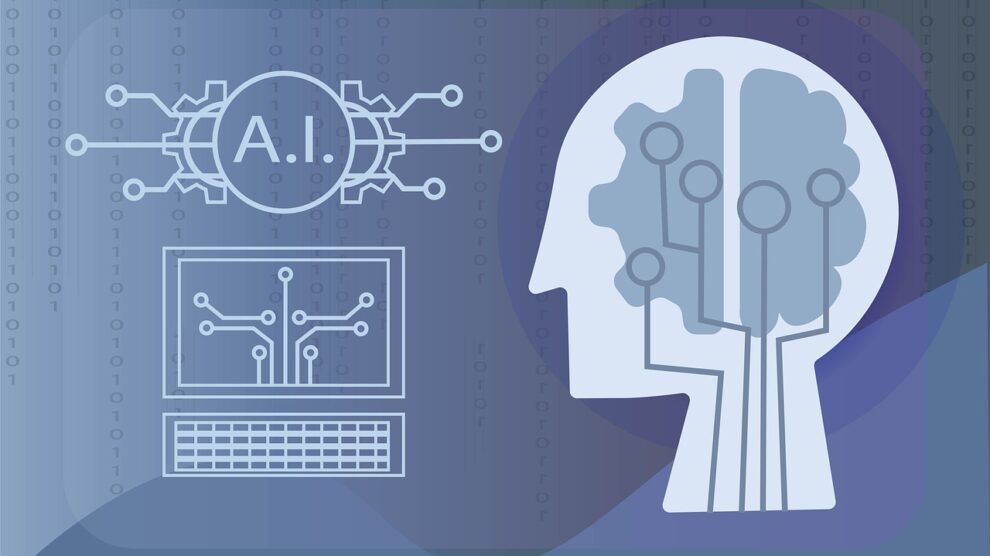In recent years, artificial intelligence (AI) has made significant strides, transforming the way we live, work, and interact with one another. As AI continues to permeate various aspects of society, ethical considerations concerning its development and use have become increasingly important. This article delves into the benefits and potential risks of AI, the ethical questions surrounding its use, current efforts to address these concerns, and the importance of striking a balance between innovation and responsibility.
According to market.us, The Artificial Intelligence Market is projected to grow exponentially over the next decade,and it is expected to grow around USD 2,967.42 billion by 2032 from USD 94.5 billion in 2021.
The Benefits of AI
AI has revolutionized numerous industries, streamlining processes and providing innovative solutions to complex problems. In healthcare, for example, AI-powered algorithms are used to diagnose diseases with remarkable accuracy, saving lives and improving patient outcomes. In transportation, self-driving vehicles are becoming a reality, with the potential to reduce accidents caused by human error.
Automation of Repetitive Tasks: AI has the potential to automate tedious and time-consuming tasks that would otherwise need human effort. This not only saves companies time and money, but it also frees up employees to focus on higher-level activities requiring creative problem-solving skillsets.
Improved Efficiency: AI can increase efficiency by analyzing large amounts of data and recognizing patterns and trends that humans may not be able to notice. This leads to better decision-making and accurate predictions, which could be especially helpful in industries like finance, healthcare, and logistics.
Personalization: AI can also assist companies in providing more tailored experiences for their customers. By analyzing a customer’s purchase history and behavior, AI may suggest products or services that may be of interest to them, or personalize marketing messages to better match their preferences and needs.
Improved Safety: AI can enhance safety in various ways. For instance, AI-powered systems in the automotive industry help prevent accidents by detecting and responding to potential road hazards. Similarly, healthcare industries use AI for patient safety by analyzing medical data and alerting healthcare professionals of potential risks or complications.
Innovation and New Opportunities: AI can drive innovation and open up a world of new possibilities for businesses and entrepreneurs. For instance, AI-powered chatbots provide round-the-clock customer service, while automated creative tasks such as designing logos or crafting copy can be automated using AI technologies.
In the realm of environmental sustainability, AI is being utilized to optimize energy consumption, predict weather patterns, and monitor deforestation. Additionally, AI-powered language models have transformed the way we communicate, breaking down language barriers and enhancing global collaboration.
The Potential Risks of AI
While AI offers numerous benefits, there are also significant risks associated with its irresponsible development and use. One concern is the potential for AI to perpetuate and amplify existing biases in society. Algorithms trained on historical data can inadvertently inherit the biases present in that data, leading to unfair or discriminatory outcomes.
Another potential risk is the loss of privacy, as AI systems become increasingly capable of analyzing and interpreting personal information. This may lead to intrusive surveillance practices and the erosion of individual autonomy.
Moreover, the development of autonomous weapons raises serious ethical questions about the potential for AI to be used in harmful ways. These weapons could lower the threshold for conflict and create new security risks, undermining global stability.
Ethical Considerations for AI
The complex nature of AI technology raises several ethical questions. One of the most pressing concerns is the issue of responsibility. If an AI system causes harm, who should be held accountable – the developers, the users, or the AI itself?
Another critical ethical consideration is the societal impact of AI. The displacement of jobs due to automation could lead to unemployment and exacerbate income inequality. Additionally, the use of AI in decision-making processes may have unintended consequences, as these systems can lack transparency and be difficult to understand or scrutinize.
Current Efforts to Address AI Ethics
As the importance of AI ethics becomes increasingly recognized, various organizations and initiatives have emerged to address these concerns. Groups like OpenAI, the Partnership on AI, and the AI Ethics Lab are focused on researching and promoting best practices for AI development and use.
Governments around the world are also taking steps to regulate AI, introducing policies and frameworks to ensure its responsible deployment. For example, the European Union has proposed regulations aimed at creating a legal framework for AI, including measures to address bias, transparency, and accountability.
Balancing Innovation and Responsibility
Striking a balance between innovation and responsibility in AI development is crucial. One approach is to incorporate ethical considerations into the design process from the outset. By integrating ethics into AI research and development, organizations can proactively address potential risks and minimize the likelihood of unintended consequences.
Collaboration between academia, industry, and government is also essential in achieving this balance. By fostering dialogue and sharing knowledge, stakeholders can develop a shared understanding of the ethical implications of AI and work together to create responsible solutions.
Conclusion
The rapid advancement of AI technology presents both tremendous opportunities and significant ethical challenges. Balancing innovation and responsibility is crucial to ensuring that AI benefits society while minimizing potential harm. By prioritizing AI ethics, individuals and organizations can contribute to a future where technology is developed and deployed in a manner that upholds our collective values and promotes the greater good.
As AI becomes increasingly integrated into our daily lives, it is essential to be aware of the ethical concerns that accompany its use. Individuals can play a role by advocating for responsible AI practices and staying informed about developments in AI ethics. Companies should prioritize transparency and accountability in their AI initiatives and strive to create inclusive and unbiased systems.
Moreover, governments have a responsibility to enact regulations that foster responsible AI development and address potential societal impacts. This may involve investing in education and workforce development to mitigate job displacement and creating social safety nets to support those affected by technological change.
Ultimately, the future of AI is in our hands. By actively engaging with the ethical challenges of AI and working together to find responsible solutions, we can help shape a future that harnesses the power of AI for the betterment of society. A future where innovation and responsibility coexist, ensuring that the incredible potential of AI is realized in a way that upholds our ethical values and promotes the common good.





